The Red Sea’s crystalline waters have long guided mariners, but above them lies a sky few will ever see. Nujuma, a Ritz-Carlton Reserve, sits on a secluded island where darkness untainted by city lights reveals stars in remarkable clarity. Its name, drawn from the Arabic word for “stars,” signals the resort’s focus on meaningful encounters with the cosmos. The night sky here is expansive and precise, allowing visitors to witness constellations, planets, and the Milky Way in a way that is impossible in most parts of the world.
Beyond its location in the Blue Hole cluster, Nujuma offers an experience that is both immersive and precise. Guided by resident astronomer Habib Bafeil, guests trace routes once used by desert nomads while exploring milestones in modern space exploration.
During evening sessions, the sky is not only observed but experienced, as constellations are identified, myths and stories are shared, and the rhythm of the cosmos is felt alongside the gentle lapping of the Red Sea.
Exploring The Cosmos
Habib Bafeil, who calls his path into hospitality “a happy accident,” brings complex scientific concepts to life. Each evening session blends tradition and discovery. Guests learn how Bedouin tribes navigated vast deserts by the stars while also following the trajectory of NASA’s lunar ambitions and private-sector innovations. Sessions often include hands-on observation through professional-grade telescopes, guided tours of key celestial events, and small-group discussions that encourage curiosity and reflection.
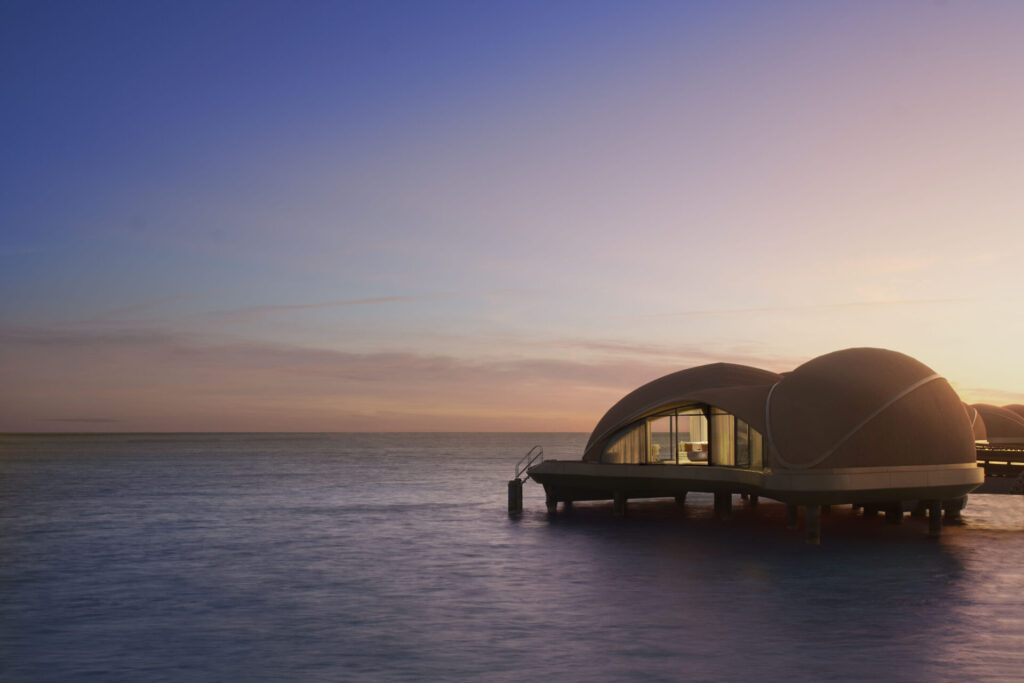
The island’s isolation ensures unparalleled viewing conditions. Telescopes reveal distant galaxies with remarkable clarity, while naked-eye observation allows guests to experience the vastness of the cosmos firsthand, creating moments of quiet awe and contemplation.
Luxury Designed For Dark Skies
Nujuma’s environmental philosophy underpins its astronomical program. LEED Platinum certification reflects measures including 100% renewable solar energy and the elimination of single-use plastics. These practices preserve the dark skies, which are essential for stargazing, and ensure the surrounding environment remains as pristine as when the island was first discovered. Sustainability is woven into the experience, from eco-conscious building materials to lighting design that minimises light pollution without compromising comfort.
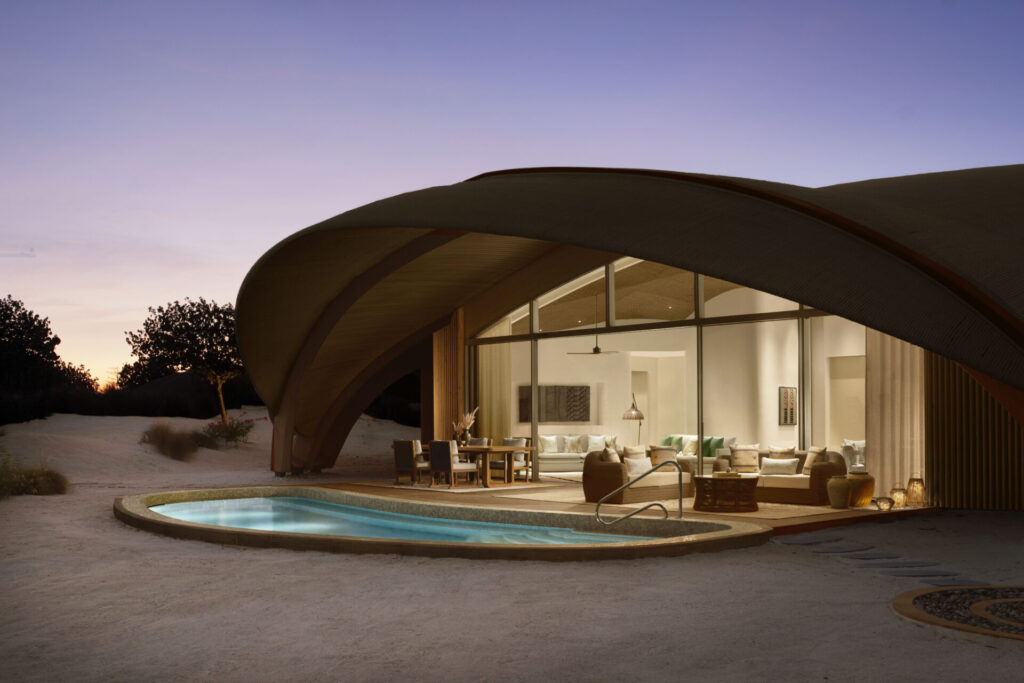
Sixty-five private villas are positioned to preserve the island’s character while providing uninterrupted ocean or sky views. Each villa blends understated luxury with natural surroundings, featuring outdoor decks, private pools, and interiors that reflect regional textures and materials. Guests arrive by seaplane, yacht, helicopter, or speedboat, combining accessibility with privacy and exclusivity. The journey to Nujuma becomes part of the experience, heightening anticipation and reinforcing the sense of escape.
The Conservation House: Connecting Land and Cosmos
The Conservation House serves as the island’s educational hub, connecting terrestrial and celestial exploration. Astronomers, marine biologists, and cultural specialists offer programmes in coral reef conservation, traditional crafts, and regional history, ensuring a holistic engagement with the island’s unique ecosystem.
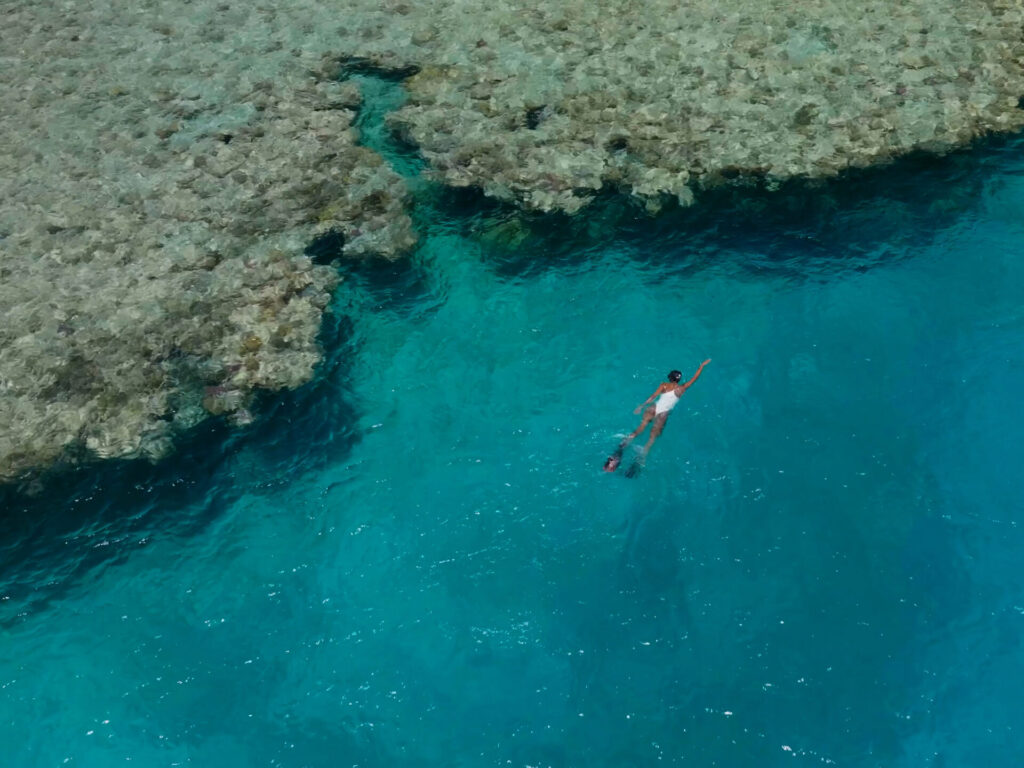
Guests can participate in guided snorkel excursions, learn about coral restoration techniques, and explore the ways in which local communities have lived in harmony with the desert and sea for generations.
A Taste of Tabuk
The resort sources ingredients from Tamala Farm and over 3,000 regional producers throughout the Tabuk province. Local citrus, olives, dates, and sustainably harvested seafood feature prominently across dining venues, supporting regional agriculture while minimising transportation impacts. Menus change seasonally, reflecting the natural cycles of the land and sea, and chefs incorporate traditional techniques alongside modern culinary innovation.
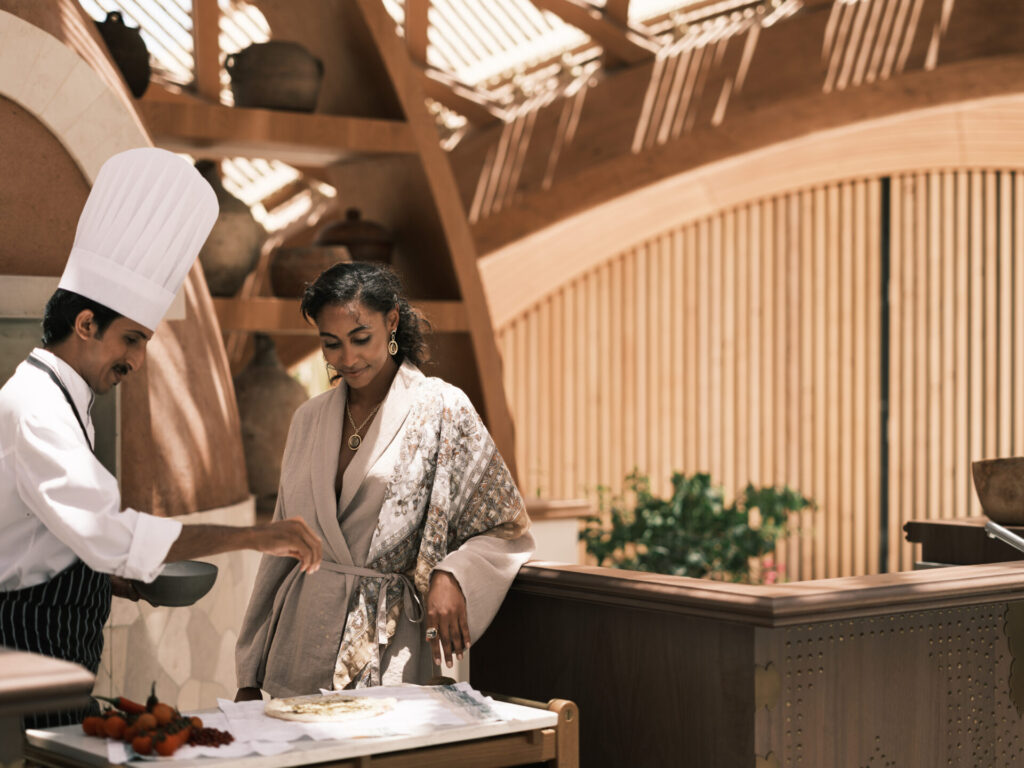
Water conservation measures include grey water recycling systems supporting native vegetation. The property has contributed to planting 190,000 mangroves alongside protection initiatives for turtle nesting sites. These efforts preserve the pristine conditions essential for both marine life and optimal sky visibility. Guests can observe the thriving marine ecosystem firsthand, from coral reefs teeming with life to nocturnal turtle nesting, tying environmental awareness directly to the island experience.
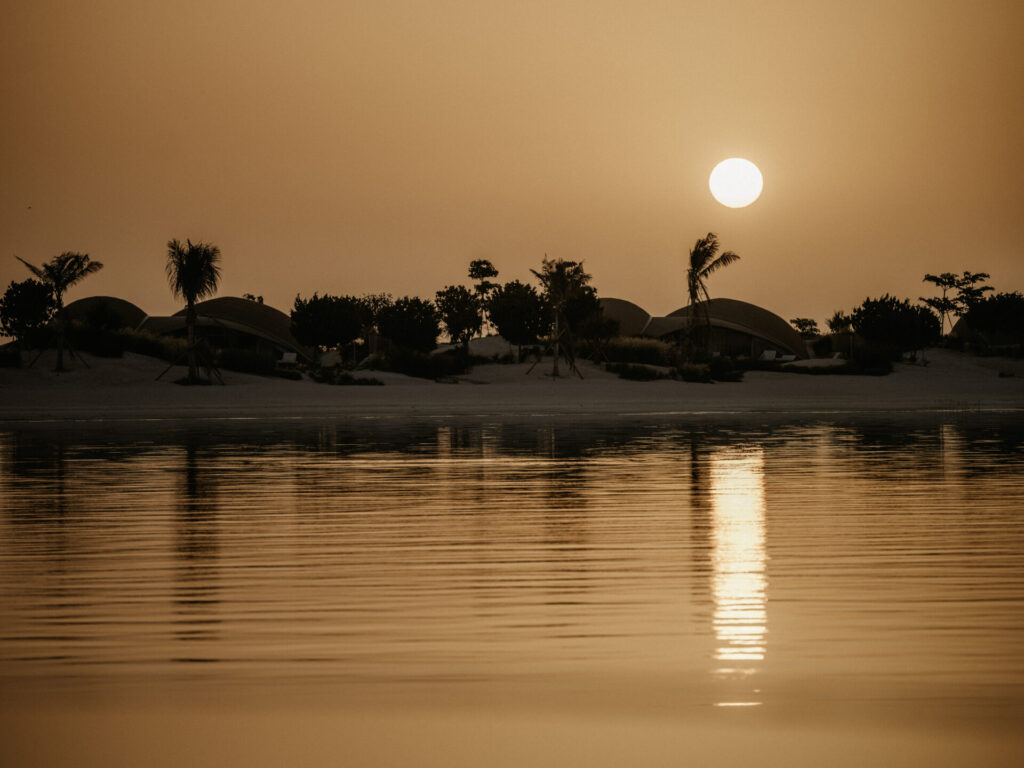
Partnership with Red Sea Global extends conservation efforts across multiple properties, including The St. Regis Red Sea Resort, creating a framework for sustainable luxury that balances environmental responsibility with guest experience. The coordinated approach ensures that conservation is not just a practice but a philosophy that informs every aspect of life on the island.



